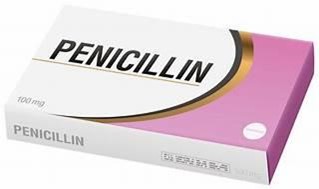Interactions and contraindications
Interactions and contraindications ( 5 Questions)
A nurse is preparing to administer penicillin to a client who has a bacterial infection. The client also takes probenecid for gout.
What effect will probenecid have on the penicillin?
It will increase the serum levels and half-life of penicillin. Probenecid inhibits the renal excretion of penicillin, which prolongs its action and increases its concentration in the blood. This can be beneficial for treating severe infections, but it also increases the risk of adverse effects and toxicity.

Choice B is wrong because probenecid does not affect the absorption or bioavailability of penicillin.
These factors depend on the route of administration and the formulation of the drug.
Choice C is wrong because probenecid does not enhance the bactericidal activity of penicillin.
Penicillin kills bacteria by interfering with their cell wall synthesis, which is independent of probenecid.
Choice D is wrong because probenecid does not reduce the risk of allergic reaction to penicillin. In fact, probenecid may increase the risk of hypersensitivity reactions by prolonging the exposure to penicillin.
It will increase the serum levels and half-life of penicillin. Probenecid inhibits the renal excretion of penicillin, which prolongs its action and increases its concentration in the blood. This can be beneficial for treating severe infections, but it also increases the risk of adverse effects and toxicity.
Choice B is wrong because probenecid does not affect the absorption or bioavailability of penicillin.
These factors depend on the route of administration and the formulation of the drug.
Choice C is wrong because probenecid does not enhance the bactericidal activity of penicillin.
Penicillin kills bacteria by interfering with their cell wall synthesis, which is independent of probenecid.
Choice D is wrong because probenecid does not reduce the risk of allergic reaction to penicillin. In fact, probenecid may increase the risk of hypersensitivity reactions by prolonging the exposure to penicillin.
Normal ranges for serum levels and half-life of penicillin vary depending on the type and dose of penicillin, but generally they are between 2 to 40 mcg/mL and 0.5 to 1.5 hours, respectively.
